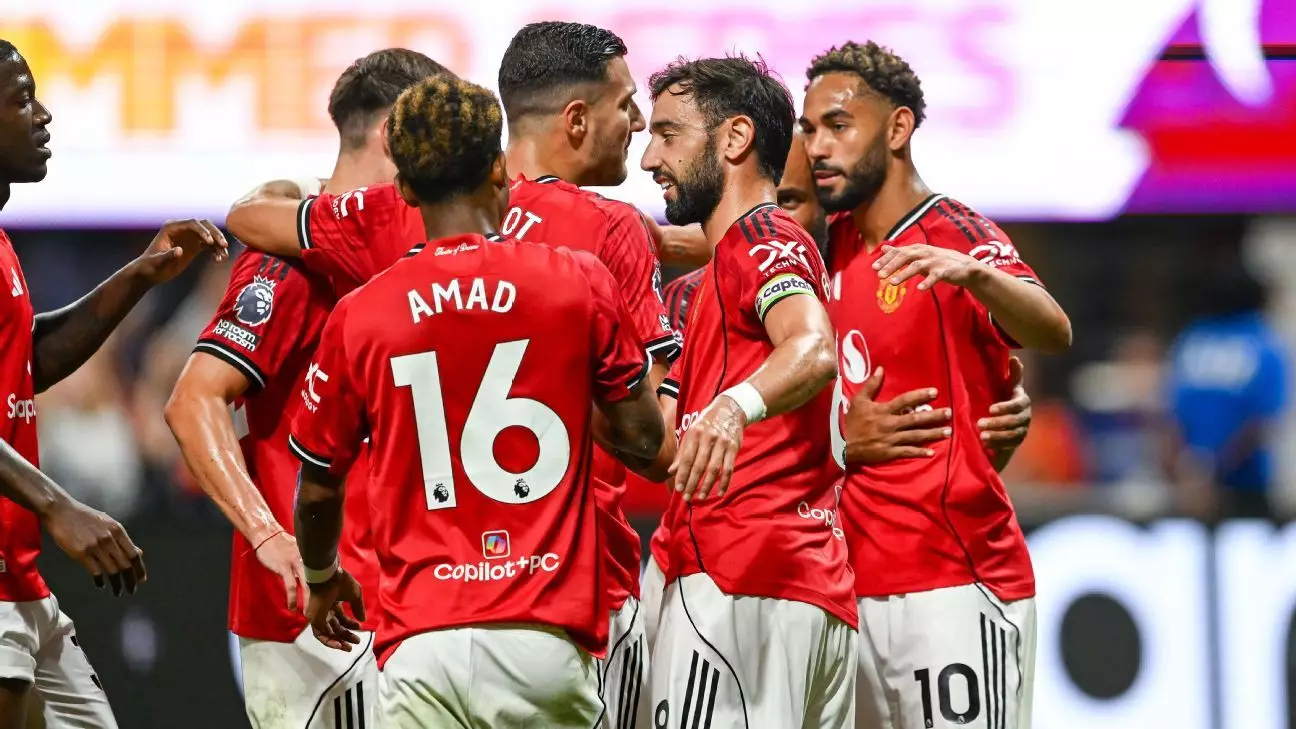In the wake of Manchester United’s bleakest league performance in decades, the focus often lingers on standout players and their achievements. Bruno Fernandes, the club’s influential captain, was a bright spot amid the darkness of last season’s dismal 15th-place finish. Despite his commendable tally of 19 goals and a prestigious PFA Player of the Year nomination, Fernandes surprisingly expresses a desire to shift the spotlight away from himself and onto the collective strength of the team. This stance reveals a mature understanding that true success in football is not achieved through individual heroics alone, but through synchronized effort, shared responsibility, and a unified vision.
Fernandes’ humility signifies a crucial mindset shift. His wish for less personal praise exemplifies the evolving identity of a club yearning for stability and consistency rather than fleeting individual acclaim. It underscores a fundamental truth: sustainable progress on the pitch is rooted in synergy among players, staff, and management. United’s ambitions, therefore, should be anchored in fostering a culture where every member’s role contributes to a shared goal—restoring the club’s historic stature, not merely elevating individual profiles.
Building a New Foundation: Opportunities Born from Challenges
The shadow of last season’s chaos has cast doubt, yet it also sparks a rare opportunity for introspection and strategic overhaul. Manchester United’s summer transfer window signals intent; the arrivals of Matheus Cunha, Bryan Mbeumo, and Benjamin Sesko are not mere additions but potential catalysts for change. The optimism among fans is cautiously optimistic, driven by the belief that fresh blood combined with tactical adjustments can reignite the club’s attacking prowess and defensive resilience.
However, Fernandes wisely tempers expectations. His acknowledgment that goal-scoring alone does not define success emphasizes a holistic approach—improving teamwork both offensively and defensively. The dire statistic of scoring only 44 goals last season, one of the worst in the league, demands more than new forwards; it calls for collective effort in pressing, transitioning, and tactical discipline. By focusing on defensive cohesiveness and attacking fluidity, Manchester United can dismantle the cycle of underperformance and construct a sustainable winning mentality.
Leadership From Within and the Power of Cultural Transformation
Fernandes’ leadership is crucial in fostering a future-oriented mindset among the squad. His call for a focus on team dynamics over individual achievements underscores the importance of cultural transformation within Manchester United. Success will not stem solely from strategic signings or tactical tweaks, but from cultivating a resilient, disciplined, and united locker room.
The belief that “this could be a time of change” encapsulates hope—but also demands action. The club’s management must nurture an environment where players take collective ownership of deficiencies and collectively celebrate successes. This includes empowering younger talents, sharpening tactical consistency, and building a mentality that embraces continuous improvement. Fernandes’ experience suggests that enduring success is a marathon, not a sprint—a journey of incremental progress reinforced by a shared vision and unwavering commitment.
Looking Ahead: The Vital Role of Cohesion and Resilience
As the Premier League gears up for another gripping season, Manchester United stands at a pivotal crossroads. The mix of new signings, strategic shifts, and developing team chemistry offers a glimmer of hope. Fernandes’ optimism is rooted not just in the arrivals of talented individuals but in the collective effort to reforge a resilient identity.
For United to truly ascend, the emphasis must shift from individual heroics to collective resilience. Defending better requires coordinated team movements; scoring more hinges on synchronized attacking principles. The journey towards consistency will involve confronting and overcoming past shortcomings—a process demanding patience, discipline, and unity.
The club’s true strength lies in its capacity to evolve through shared purpose, guided by leaders who prioritize the team’s success over personal glory. If Manchester United embraces this paradigm, they will not just return to their former glory—they will set the stage for a new era built on the enduring foundation of collective growth and unwavering resilience.

